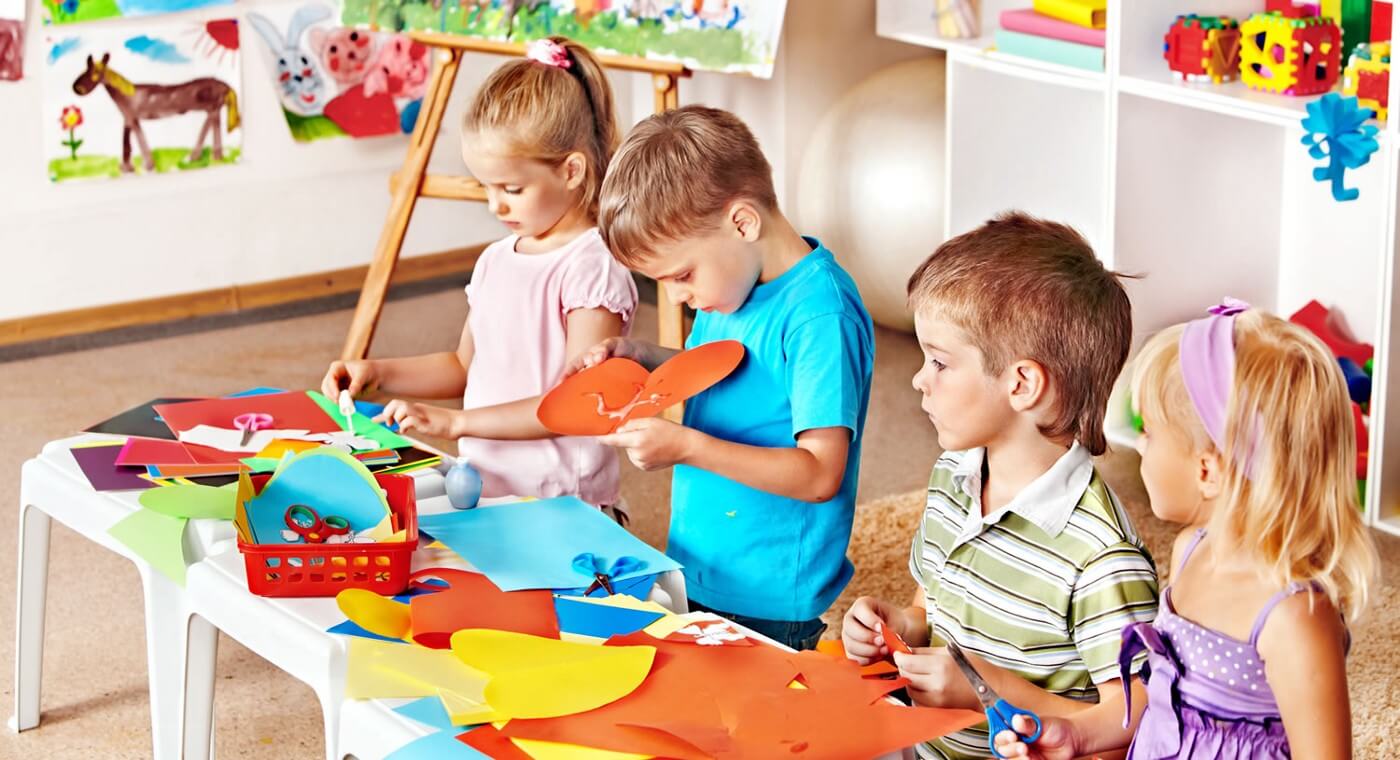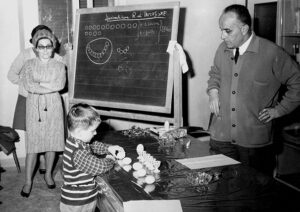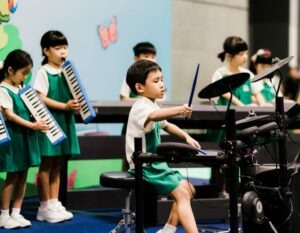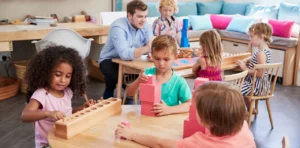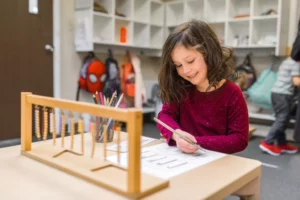Dr. Maria Montessori was the first physician of Italy and is the founder of the Montessori education program. Through her research, she found that children have a natural inclination to learn when getting an environment that supports their natural desire to develop various skills and knowledge. Dr. Montessori noticed that the children in the center enjoyed puzzles and learned more quickly when subjects like math were taught using manipulative materials. She developed learning materials and environments that support a child’s innate interests in learning.
What is Montessori theory?
Dr. Montessori identified different development phases when she started observing children. According to her, there are the following development phases in a child:
- The development of an individual self,
- Social development,
- The birth of the adult phase and
- The mature phase.
Children are driven to acquire particular skills at every development phase. Let’s say; a very young child will try to learn a specific language or speech. Dr. Montessori called these phases windows of opportunity. So, she designed the class with age-appropriate tasks and materials to maximize the learning at every stage.
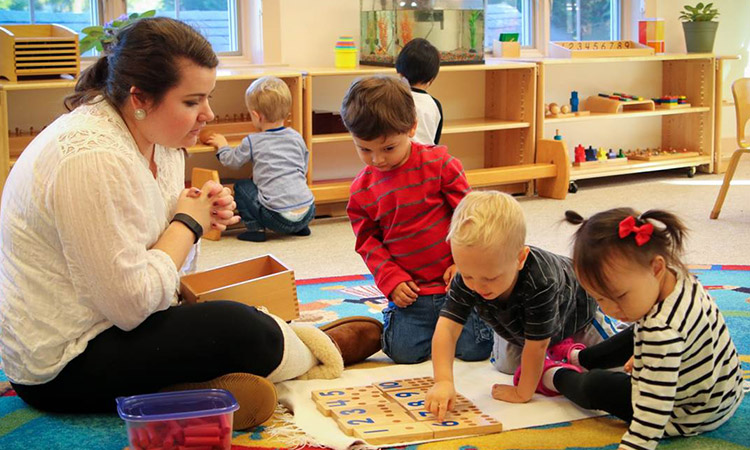
The Montessori classroom revolves around three main elements:
- The teacher,
- The child, and
- The surrounding environment
Each child works at his or her own pace-with any assistance from other children occurring on the spur of the moment. Teachers do not put pressure on students to work quicker, and they provide feedback for improving abilities as needed.
More about the Montessori method:
- Montessori classes have children of various ages, which more closely matches a real-life setting. The younger children (ages 3-5) concentrate on their work to promote cognition through the direct experience of seeing, tasting, smelling, and touching.
- In the upper grades, elementary-aged children move their attention away from concrete (or sensory) tasks and more towards abstract tasks. The materials and curriculum are multidisciplinary, and the children begin to apply what they have learned in the classroom to real-life situations.
- Children study the same subjects as students in other schools, such as math, physics, languages, and history, but with a distinct method. Students who study a map of Europe learn about the continent’s geography and also about its art and history. This method allows students to entirely examine a topic rather than being limited to discrete sections that separate from the whole.
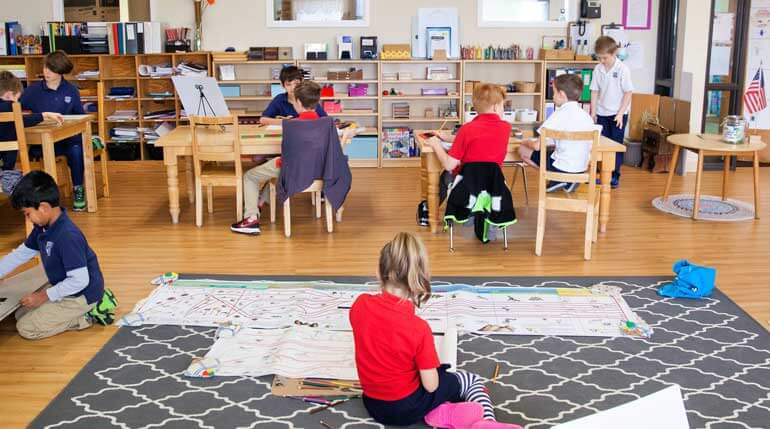
Why is Montessori education better?
One of the common questions is why should send the child to a Montessori school when other options are also there. To know the answer to this question; let’s explore the below-mentioned points:
1. Meets the need of every child:
- The Montessori classroom is driven by Maria Montessori’s principle that is quite effective. There are no advancement expectations that are solely dependent on age. Instead, each child is treated as an individual, with classes and materials tailored to their interests and talents.
- Children work through the subjects at their own pace, guided by their teacher’s knowledge and expertise. Regardless of age, when a child is ready for the next step or level, the teacher provides them that lesson.
2. Encourages independence:
- Visitors to a Montessori classroom are frequently astonished by how quiet the environment appears. Everyone is active and engaged as the children work alone or in pairs. Children learn how to accomplish routine activities for themselves from the first day in their new classroom. A new child receives enough brief lessons in his first week to ensure that he or she has numerous things from which to pick.
- Accidents and concerns will be addressed by the teacher, and children get to learn how to fix the situation. They will learn to ask for help when they need it, but they will also discover that they’re capable of achieving more than they think in their unique way.
3. Develops problem-solving skills:
Teachers ask questions rather than merely providing answers. Instead of just praising a child’s achievement, a Montessori teacher recognizes the effort that went into completing the task or learning a new skill, highlighting traits such as discipline, concentration, and perseverance.
4. Develops internal motivation:
Instead of relying on others for external praise, Montessori teaches children to create internal motivation. They learn to look within and see that they are in charge of their achievement and that they are capable of meeting additional challenges. They learn to think imaginatively and confidently face new challenges.
Closure:
Choosing the best preschool for your children is one of the daunting tasks for parents. When it comes to providing education, Montessori schools are a great option. The schools provide an environment that helps children to develop essential skills effortlessly. Numerous reasons make Montessori education popular and let parents opt for it for their kids. Give the best learning experience to your child and make them learn different skills without any difficulty. Montessori classrooms are filled with fun and opportunity. Let your child explore!

